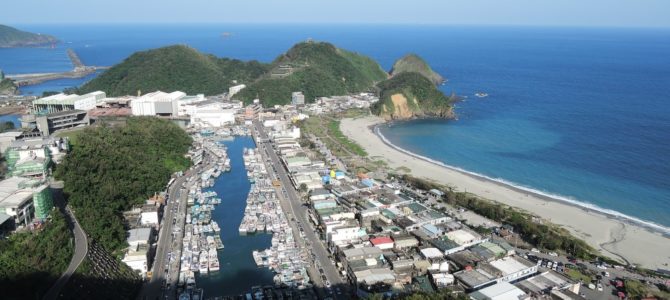
Largely unreported in corporate media, last week Chinese fighters apparently simulated sinking a U.S. carrier in an attack. On Jan. 23, according to intel sources, cockpit chatter highlighted a command to simulate targeting the USS Theodore Roosevelt carrier group.
China has been in news over sporadic border clashes with India and a flyby of Taiwan on the day of President Biden’s inauguration. But a direct simulation of a strike on a U.S. carrier group signifies that Beijing now considers even a limited military clash with America over Taiwan within the realm of possibility.
That brings us to the biggest foreign policy question, which the Biden administration is likely not yet ready to face. What happens the day after China launches an invasion of Taiwan?
So far, the Biden administration’s reaction has signaled rhetorical continuity with the Trump era. American foreign policy wonks, despite all divisions, are bipartisan about the China threat. One might not hear it much in public, but despite being divided between realists who prefer a narrower national interest-based approach, and liberals and neoconservatives who prefer interventions and democracy promotion, foreign policy circles so far are united in their threat appraisal of the rise of China as the largest threat facing the United States.
Secretary of State Tony Blinken, as well as newly confirmed National Security Director Avril Haines, said in front of the Senate that China is the United States’ biggest challenge, and the former president “was right in taking a tougher approach.” “What we’ve seen over the last few years is that China is growing more authoritarian at home and more assertive abroad,” White House Press Secretary Jen Psaki said, adding that Beijing is now challenging American security, prosperity, and values in ways that have made the previous U.S. approach towards China incoherent.
Recently Taiwan faced two incursions of Chinese fighters. The first contained four J-16 fighters, six H-6 bombers, and one anti-sub warfare craft. The second was an even larger group of 15 total jets, prompting the U.S. State Department spokesperson to comment that the U.S. relationship with Taipei was “rock solid,” pressing Beijing to stop intimidating Taiwan.
But these tests are meant to be tests, specific ways to probe the U.S. reaction without pushing it to a level that ignites a spark, a below-the-threshold strategy practiced to perfection by communist states. The Soviet Union practiced this as well in Europe, testing North Atlantic Treaty Organization defenses, a practice Russia continued in the Baltics.
In probing Taiwan’s air defenses, India’s command and control in the Himalayan borders, and Japanese radar in the Senkakus, China is continuing that tradition. It is improbable that Beijing hasn’t calculated that a conflict might erupt simply out of miscalculation. And even Beijing is not powerful enough to take on three adversaries on three fronts at the same time. But China is counting on similar caution from the other side.
But what if a spark is ignited? Former Deputy Assistant Secretary of Defense Elbridge Colby, for example, suggests a more hands-on approach, arguing for sinking Chinese assets and holding to the first island chain, if necessary. In other words, he believes Taiwan should be defended, with American blood if necessary.
But should it? Are Americans ready as a country, a great power, and the leader of a fractured West to face off against a nuclear superpower rival in an open-ended conflict with an almost certain potential spiral of escalation, all over Taiwan?
Long geopolitical struggles need cohesive internal politics. With Antifa and Black Lives Matter agitators on U.S. streets keeping major cities hostage, it is unthinkable that America is ready for a decades-long great power rivalry with a disciplined and structurally coherent adversary.
The threat perception is also different, and for that a little understanding of geopolitics is necessary. The original Cold War was a primarily land invasion threat. The Soviet Union was an unstoppable land empire. At the peak of its power, it controlled half of Europe.
The Western European great powers were, on the other hand, vanquished or diminished at the time. Both France and Germany were depleted after the Second World War. Britain was losing her empire fast in the 1960s, and while it comparatively remained the strongest Western European power, it was in no position to balance the Russians on her own. Naturally, a more forward presence and direct commitments were needed to deter any Russian misadventure.
Compared to that, China is a great power surrounded by powerful states. India is a nuclear power with more than 1 billion people, the fourth-highest world gross domestic product, and a strong navy. Japan has the strongest navy in Asia, after the United States. Australia and Vietnam are structurally wired to side with the United States in any conflict and carry a material burden.
Even the weakest of the lot, Taiwan, has a population of more than 24 million, a strong economy, and a well-armed army. China has hostile relations with all these powers and initiating war with one would result in other powers taking advantage and salami-slicing China. At least someone in Beijing has made that calculation, else we would have seen Chinese invasion fleets by now.
That being said, China has designs on Taiwan, and the Chinese naval buildup shows something is coming soon. In that light, a better strategy to deter China would be to arm Taiwan with A2AD weapons, rather than committing U.S. troops in a fight, which in all probability would be an empty promise.
The United States did not send troops to defend Georgia and Ukraine (rightly so, given the lack of strategic interest). It is unlikely to send Americans to die in a war with China. But it can make Taiwan and the South China Sea a graveyard for the Chinese.
Invasion and war is the easy part. Controlling an insurgency in a hostile island, far from the mainland with a constant need of supply chains, and with a hostile population of a quarter-million armed to the teeth, would bleed Beijing dry. Not to mention the invasion itself could be made costly with American weapons. As a recent paper by Ben Friedman and Eugene Gholz argues, a “defensive defense” is a better strategy to protect vulnerable allies in Asia, aiming that the manpower be provided by Asian allies in the eventuality of an armed conflict.
As Napoleon once said, it is prudent not to interrupt an enemy if he makes a mistake. Letting China overstretch and bleed amid an insurgency after invading Taiwan is a better strategy than any false hopes and commitments that will be impossible to follow through.









